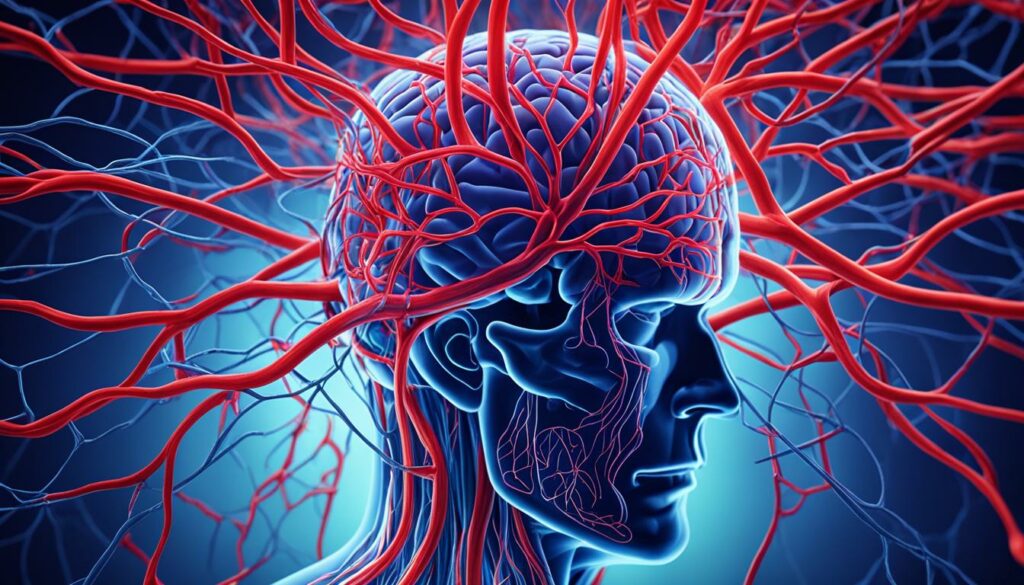Welcome to our comprehensive guide on understanding lupus migraines and finding relief options. If you or someone you know is living with lupus, you may be all too familiar with the debilitating symptoms it can bring. Lupus migraines, in particular, can significantly impact a person’s quality of life. In this article, we will explore what lupus migraines are, how they are connected to lupus, their causes, and most importantly, the various relief options available.
Lupus migraines are not just regular headaches. They are specifically linked to lupus, an autoimmune disease that affects millions of people worldwide. These migraines can be intense, long-lasting, and accompanied by other symptoms such as sensitivity to light and sound.
The connection between lupus and migraines goes beyond mere coincidence. Research suggests that lupus can trigger migraines, making them more frequent and severe. Understanding this link is crucial in finding effective relief options.
There are several causes for lupus migraines, including inflammation and autoimmune responses associated with lupus. Identifying these causes can help individuals manage and minimize the occurrence of migraines.
Fortunately, there are various relief options available for lupus migraines. From medications to lifestyle changes and alternative therapies, it is possible to find strategies that work for each person’s unique situation.
Key Takeaways:
- Lupus migraines are different from regular headaches and are specifically linked to lupus.
- Lupus can trigger migraines, leading to more frequent and severe episodes.
- Inflammation and autoimmune responses associated with lupus contribute to the causes of migraines.
- Relief options for lupus migraines include medications, lifestyle changes, and alternative therapies.
- Managing lupus and migraines require a holistic approach, involving stress management and self-care practices.
What are Lupus Migraines?
In this section, we will delve into the world of lupus migraines and uncover their distinct characteristics that set them apart from regular migraines. Lupus migraines, also known as lupus headaches, are a common symptom experienced by individuals living with lupus.
Lupus is an autoimmune disease that causes the immune system to mistakenly attack healthy tissues and organs. When lupus affects the brain and central nervous system, it can lead to the development of migraines.
So, what makes lupus migraines different from regular migraines? While both share similarities such as severe headaches, lupus migraines are often associated with other lupus symptoms, such as joint pain, fatigue, and skin rashes.
“Lupus migraines are a hallmark symptom of lupus and can significantly impact the quality of life for individuals living with this chronic autoimmune disease. Understanding the distinct nature of lupus migraines is essential for accurate diagnosis and tailored treatment.”
Common Symptoms of Lupus Migraines
Individuals with lupus migraines often experience a combination of symptoms that can vary in intensity and duration. Some common symptoms include:
- Intense, throbbing headache
- Sensitivity to light and sound
- Nausea and vomiting
- Visual disturbances, such as blurred vision or aura
- Difficulty concentrating or thinking clearly
- Increased sensitivity to smells
- Acute pain on one or both sides of the head
It’s important to note that not all individuals with lupus will experience migraines, and the presence of migraines does not necessarily indicate lupus. However, if you have been diagnosed with lupus and are experiencing severe headaches, it is crucial to consult with your healthcare provider for proper evaluation and management.
By understanding the unique symptoms and characteristics of lupus migraines, individuals living with lupus can work with their healthcare team to develop effective strategies for symptom management and relief.
Understanding the Connection between Lupus and Migraines
When it comes to understanding migraines in the context of lupus, it’s essential to explore the intricate connection between these two conditions. Migraines are a recognized symptom of lupus, and research has shown that individuals with lupus are more likely to experience migraines compared to the general population.
So, what is the underlying link between lupus and migraines? The exact mechanisms are still not fully understood, but researchers believe that various factors contribute to this connection. The immune system dysfunction associated with lupus can trigger inflammation, leading to changes in blood vessels and the release of chemicals that activate pain pathways, ultimately resulting in migraines.
Furthermore, lupus itself can directly affect the brain and the nervous system, leading to increased susceptibility to migraines. The complex interplay between genetic, hormonal, and environmental factors further exacerbates this connection, making lupus patients more prone to experiencing severe and frequent migraines.
If you are living with lupus, it’s crucial to be aware of the potential triggers for lupus migraines. Common triggers include stress, hormonal changes, fatigue, certain foods, and weather changes. By identifying and avoiding these triggers, you can help reduce the frequency and severity of migraines.
“The connection between lupus and migraines is complex and multifaceted. Understanding the interplay between these conditions can be key to managing migraine symptoms effectively.”
It’s important to note that not all individuals with lupus will experience migraines, and the severity and frequency of migraines can vary among those who do. If you are experiencing migraines as a lupus patient, it’s essential to communicate these symptoms to your healthcare provider, as they can provide guidance and recommend suitable treatment options to manage both conditions.
Migraines can significantly impact the quality of life for individuals with lupus, often leading to increased pain, fatigue, and reduced ability to perform daily activities. Seeking appropriate medical support and exploring various treatment options, both pharmacological and non-pharmacological, can help alleviate the burden of lupus migraines.
In the next section, we will delve into the causes of lupus migraines, exploring how lupus-related inflammation and autoimmune responses contribute to their onset. We will also discuss other factors that increase the risk of developing lupus migraines, providing a comprehensive understanding of the underlying causes.
Causes of Lupus Migraines
Lupus migraines can be triggered by various factors, including the underlying inflammation and autoimmune responses associated with lupus. These migraines may also be influenced by other contributors that increase the risk of developing lupus migraines.
Lupus-related inflammation: Inflammation is a hallmark of lupus, and it can directly impact the occurrence of migraines. The inflammatory response in lupus can affect the blood vessels in the brain, leading to increased sensitivity and triggering migraines.
Autoimmune responses: Lupus is an autoimmune disease where the immune system mistakenly attacks healthy tissues in the body. This immune dysregulation can disrupt the normal functioning of the nervous system, potentially contributing to the development of migraines.
Hormonal fluctuations: Hormonal changes, such as those during menstruation or pregnancy, can play a role in triggering migraines in individuals with lupus. These fluctuations can disrupt the delicate balance in the body, leading to increased migraine susceptibility.
Stress and emotional factors: Stress and emotional factors have been linked to migraines in general, and individuals with lupus may be more susceptible to their effects. The additional burden of managing lupus symptoms and the impact on daily life can contribute to stress levels and increase the risk of migraines.
Environmental triggers: Certain environmental factors can act as triggers for migraines in individuals with lupus. These may include exposure to bright lights, loud noises, strong odors, or extreme weather conditions. Identifying and avoiding these triggers may help reduce the frequency of lupus migraines.
It’s important to note that the exact causes of lupus migraines can vary from person to person. Each individual’s experience may be influenced by a combination of these factors, as well as other unique circumstances.
Understanding the underlying causes of lupus migraines is crucial for effective management and prevention strategies. By addressing these triggers and working closely with healthcare professionals, individuals with lupus can better manage their migraine symptoms and improve their overall quality of life.

Relief Options for Lupus Migraines
Lupus migraines can be extremely debilitating, causing intense pain and disrupting daily life. Thankfully, there are various relief options available to help manage this symptom. In this section, we will explore both medical and non-medical approaches that can provide much-needed relief from lupus migraines.
Lifestyle Changes
Making certain lifestyle modifications can significantly alleviate lupus migraines. Here are some key changes you can consider:
- Ensuring a regular sleep schedule to promote adequate rest and reduce the risk of migraines
- Adopting stress management techniques such as meditation, deep breathing exercises, or yoga
- Maintaining a well-balanced diet and staying well-hydrated
- Identifying and avoiding trigger foods and beverages that may contribute to migraines
- Engaging in regular physical exercise to improve overall health and reduce the frequency of migraines
Medications
In some cases, healthcare professionals may prescribe medications to help manage lupus migraines. These may include:
- Nonsteroidal anti-inflammatory drugs (NSAIDs) to reduce inflammation and alleviate pain
- Triptans, which help constrict blood vessels and reduce migraine symptoms
- Antidepressants or anticonvulsant medications, which can help prevent migraines in some individuals
- Botox injections may be recommended for severe migraines that do not respond to other treatments
Alternative Therapies
Some individuals find relief from lupus migraines through alternative therapies. While specific treatments vary for each person, the following therapies have shown promising results:
- Acupuncture, which involves the insertion of thin needles into specific points of the body to promote pain relief and relaxation
- Massage therapy to reduce muscle tension and improve blood circulation
- Herbal supplements or teas that possess anti-inflammatory properties, such as ginger or feverfew
- Chiropractic adjustments to address any postural or spinal issues that may contribute to migraines
It’s important to consult with a healthcare professional before trying any new medications or alternative therapies to ensure their safety and effectiveness for your specific condition.
| Treatment Option | Description |
|---|---|
| Lifestyle Changes | Modifying sleep patterns, managing stress, maintaining a healthy diet, avoiding trigger foods, and engaging in regular physical exercise |
| Medications | NSAIDs, triptans, antidepressants, anticonvulsants, and Botox injections |
| Alternative Therapies | Acupuncture, massage therapy, herbal supplements, and chiropractic adjustments |
Managing Lupus and Migraines
Living with lupus and migraines can be challenging, but with proper management strategies, it is possible to reduce the frequency and impact of these symptoms. Here are some practical tips and self-care practices that can help individuals with lupus find relief from migraines:
- Identify and avoid triggers: Keep a migraine diary to track potential triggers such as stress, certain foods, hormonal changes, or weather patterns. By identifying and avoiding these triggers, you can minimize the occurrence of migraines.
- Practice stress management: Stress is a common trigger for migraines among individuals with lupus. Engage in relaxation techniques such as deep breathing exercises, meditation, or yoga to help manage stress levels.
- Get regular exercise: Physical activity can help reduce the frequency and severity of migraines. Engage in low-impact exercises such as walking, swimming, or cycling to promote overall well-being.
- Maintain a balanced diet: A healthy diet can contribute to overall symptom management. Avoid foods that may trigger migraines, such as processed foods, caffeine, and artificial additives. Instead, focus on consuming a variety of fruits, vegetables, whole grains, and lean proteins.
- Establish a regular sleep routine: Poor sleep patterns can worsen both lupus symptoms and migraines. Create a calming bedtime routine and aim for consistent sleep and wake times to improve the quality of your sleep.
- Consider complementary therapies: Some individuals find relief from migraines through complementary therapies such as acupuncture, aromatherapy, or biofeedback. Consult with a healthcare professional before trying any alternative treatments.
- Stay hydrated: Dehydration can trigger migraines in some individuals. Make sure to drink an adequate amount of water throughout the day to stay hydrated.
Remember, it’s important to work closely with your healthcare team to develop a personalized management plan for lupus and migraines. By implementing these strategies and seeking appropriate medical treatment, you can find relief from pain and improve your quality of life.

Conclusion
To conclude, understanding the relationship between lupus and migraines is crucial for individuals living with this complex autoimmune disease. Lupus migraines can significantly impact quality of life, causing severe pain and discomfort. By acknowledging the connection between lupus and migraines, individuals can seek appropriate treatment and support to effectively manage this challenging symptom.
Throughout this article, we have explored the causes of lupus migraines, delving into the role of inflammation and autoimmune responses in triggering these headaches. We have also discussed various relief options, including both medical and non-medical approaches, to help alleviate the pain and frequency of lupus migraines.
Moreover, managing both lupus and migraines requires a holistic approach. Lifestyle modifications, stress management techniques, and self-care practices play an integral role in minimizing the impact of migraines. By adopting healthy habits and seeking professional guidance, individuals with lupus can enhance their overall well-being and reduce the frequency of migraines.
In conclusion, individuals with lupus should be empowered to proactively address their migraines. By understanding the link between lupus and migraines and exploring the available treatment options, it is possible to control symptoms and improve daily functioning. Remember, seeking appropriate medical advice and support is key to effectively managing lupus migraines and enhancing the overall quality of life.









